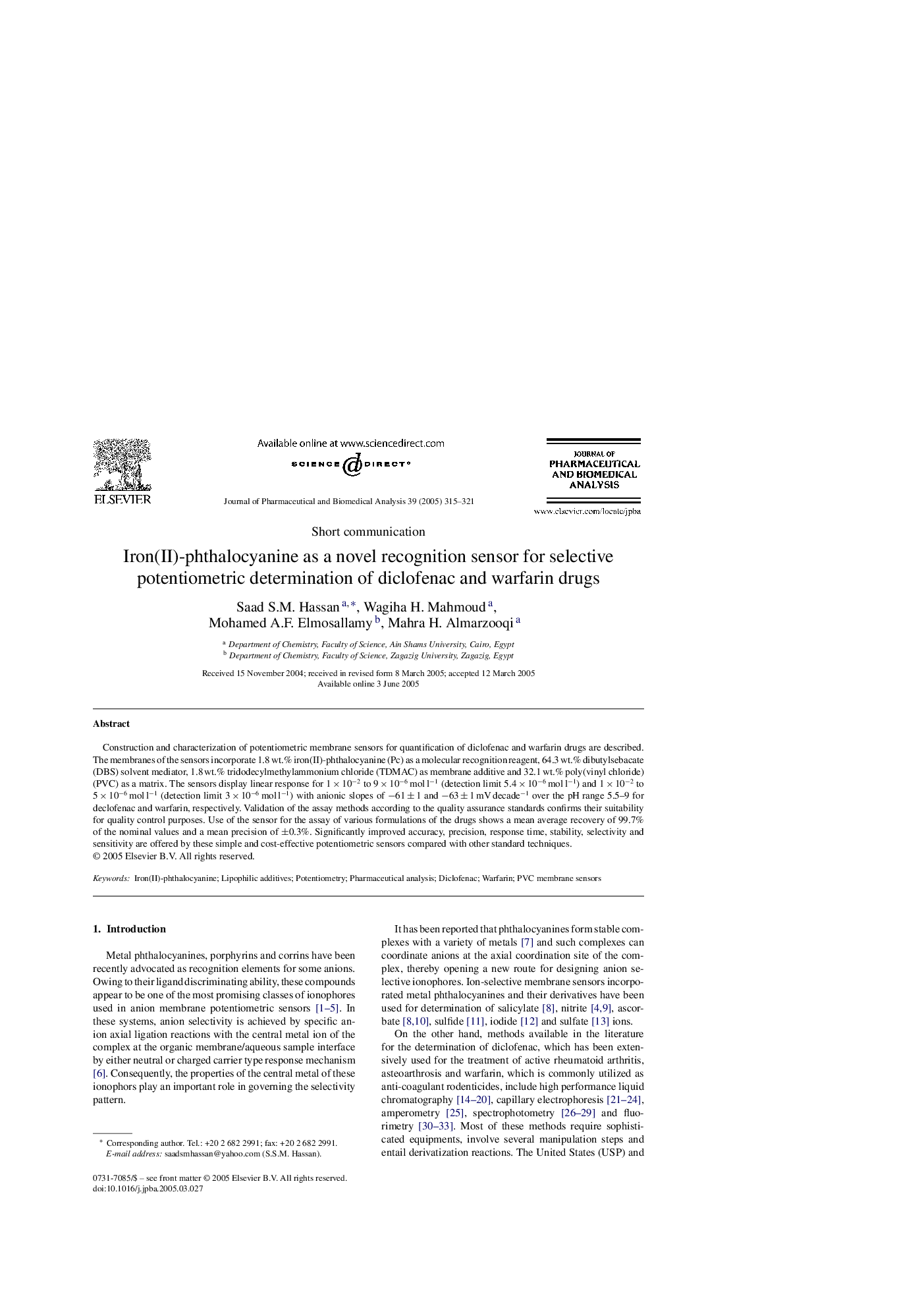| Article ID | Journal | Published Year | Pages | File Type |
|---|---|---|---|---|
| 9754522 | Journal of Pharmaceutical and Biomedical Analysis | 2005 | 7 Pages |
Abstract
Construction and characterization of potentiometric membrane sensors for quantification of diclofenac and warfarin drugs are described. The membranes of the sensors incorporate 1.8 wt.% iron(II)-phthalocyanine (Pc) as a molecular recognition reagent, 64.3 wt.% dibutylsebacate (DBS) solvent mediator, 1.8 wt.% tridodecylmethylammonium chloride (TDMAC) as membrane additive and 32.1 wt.% poly(vinyl chloride) (PVC) as a matrix. The sensors display linear response for 1 Ã 10â2 to 9 Ã 10â6 mol lâ1 (detection limit 5.4 Ã 10â6 mol lâ1) and 1 Ã 10â2 to 5 Ã 10â6 mol lâ1 (detection limit 3 Ã 10â6 mol lâ1) with anionic slopes of â61 ± 1 and â63 ± 1 mV decadeâ1 over the pH range 5.5-9 for declofenac and warfarin, respectively. Validation of the assay methods according to the quality assurance standards confirms their suitability for quality control purposes. Use of the sensor for the assay of various formulations of the drugs shows a mean average recovery of 99.7% of the nominal values and a mean precision of ±0.3%. Significantly improved accuracy, precision, response time, stability, selectivity and sensitivity are offered by these simple and cost-effective potentiometric sensors compared with other standard techniques.
Related Topics
Physical Sciences and Engineering
Chemistry
Analytical Chemistry
Authors
Saad S.M. Hassan, Wagiha H. Mahmoud, Mohamed A.F. Elmosallamy, Mahra H. Almarzooqi,
